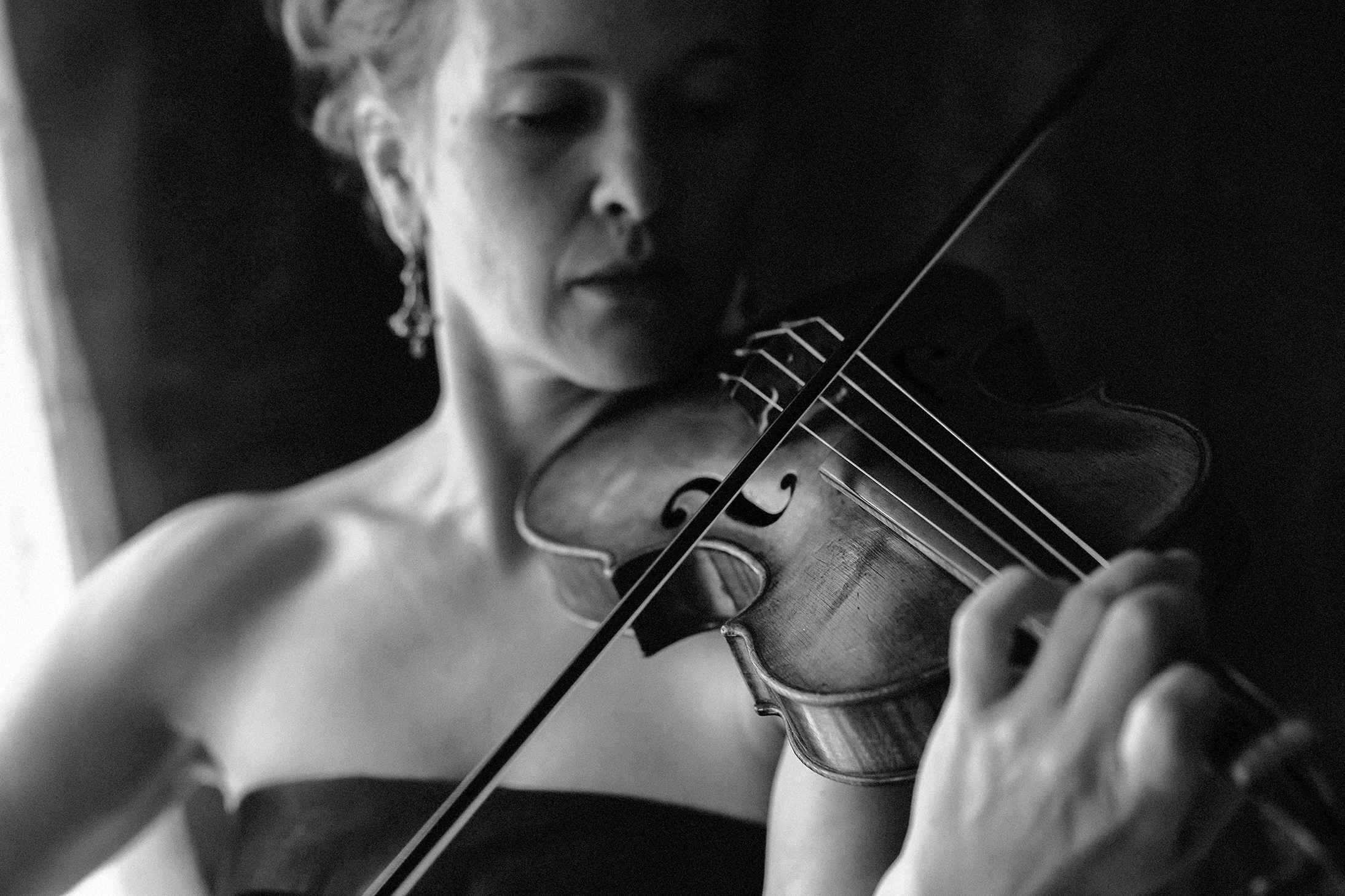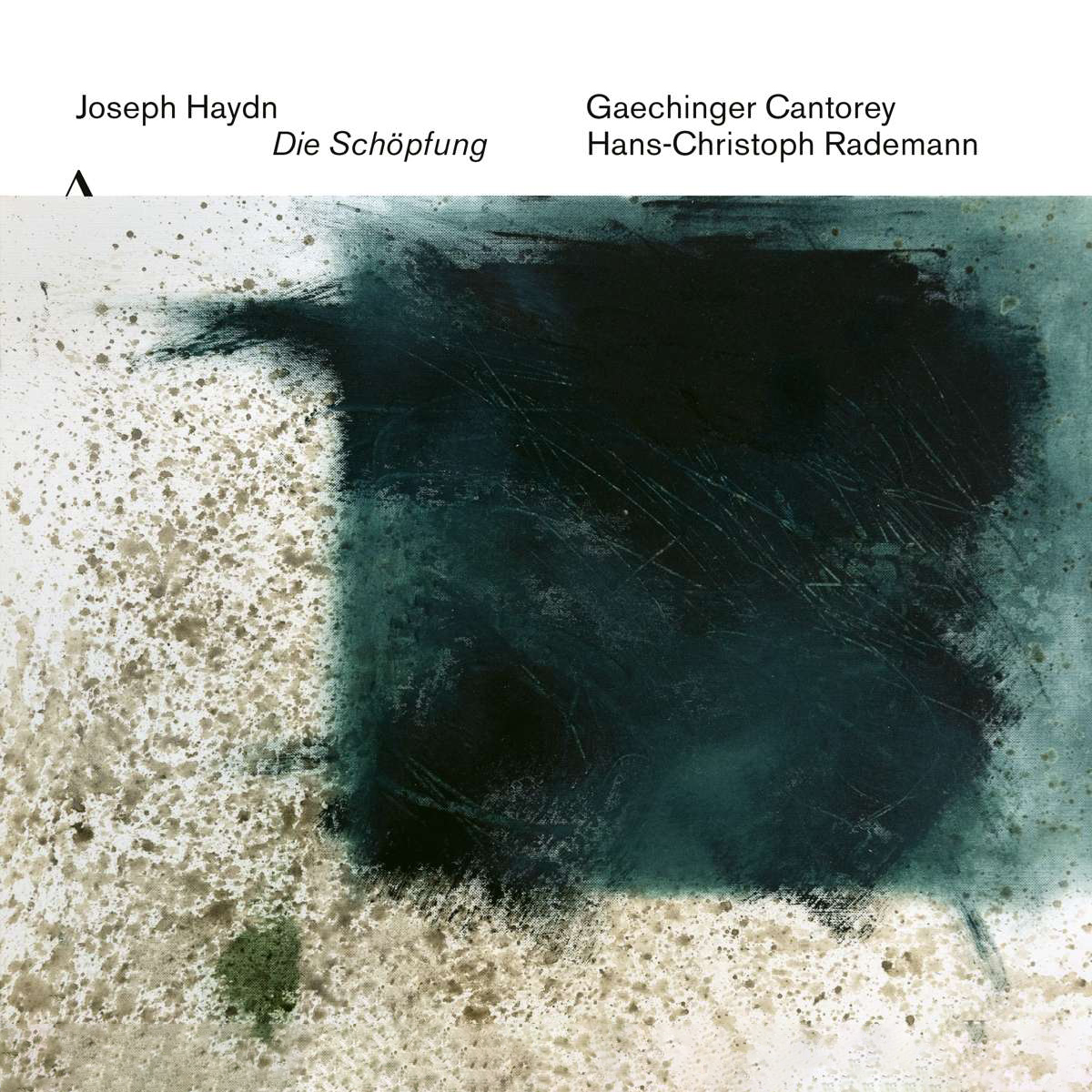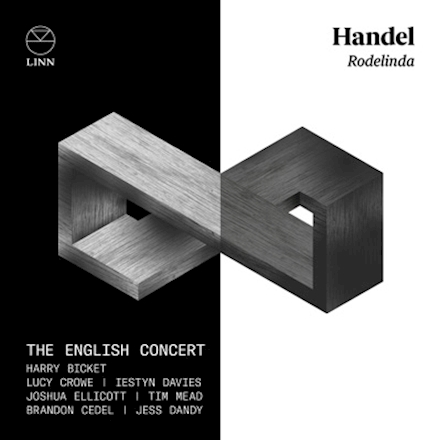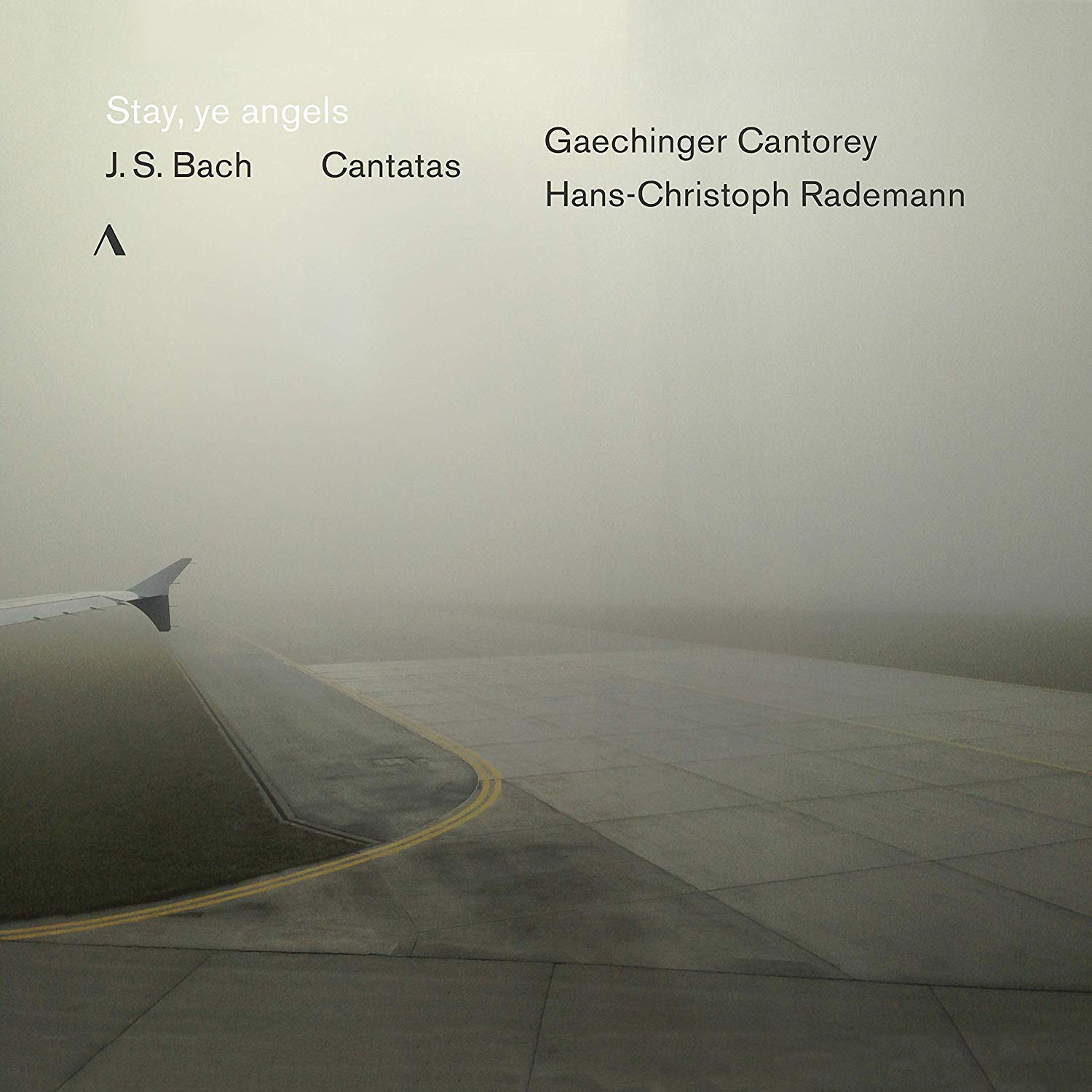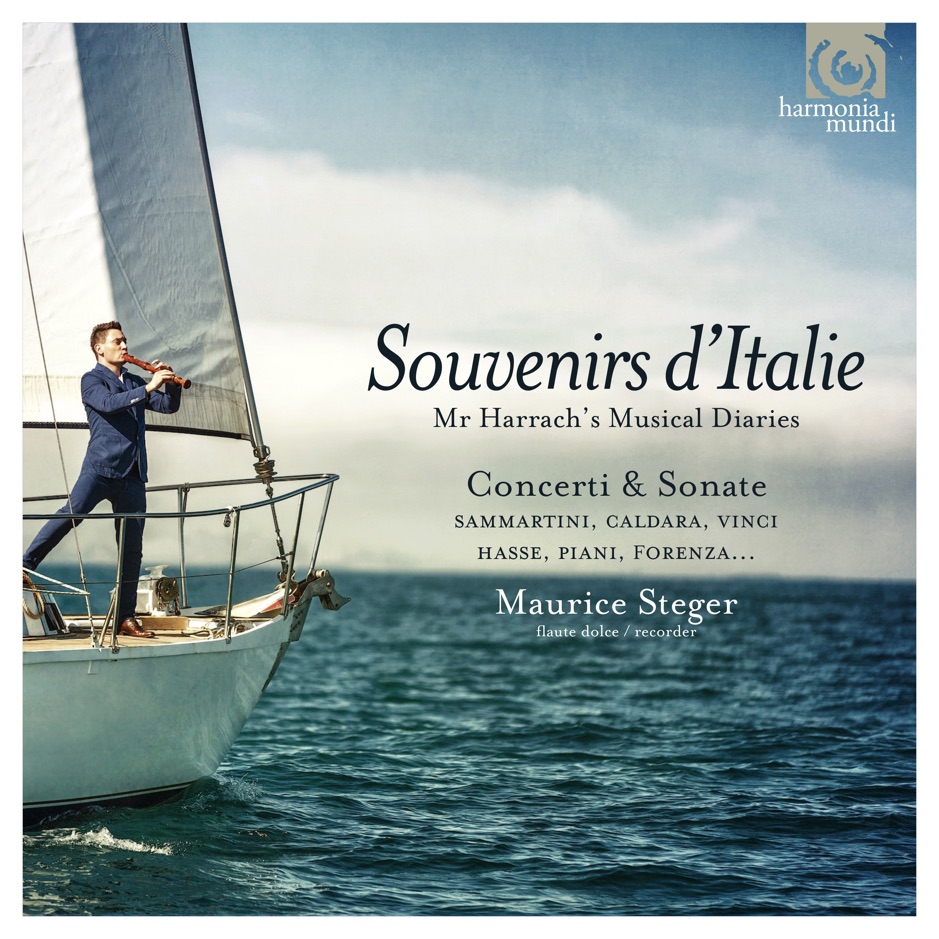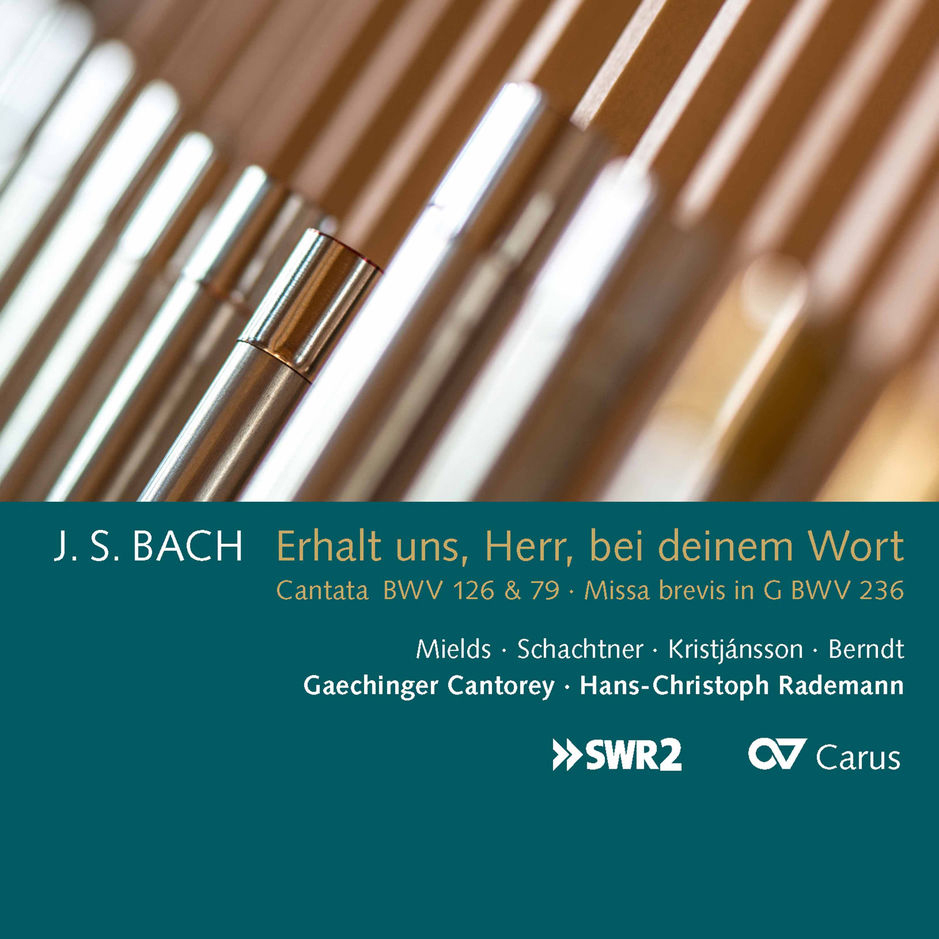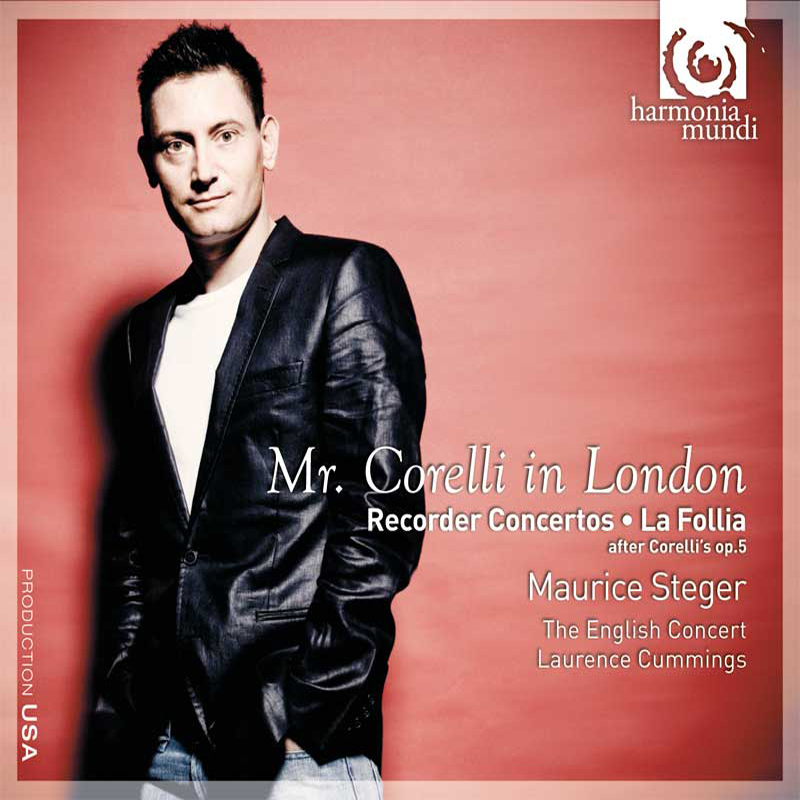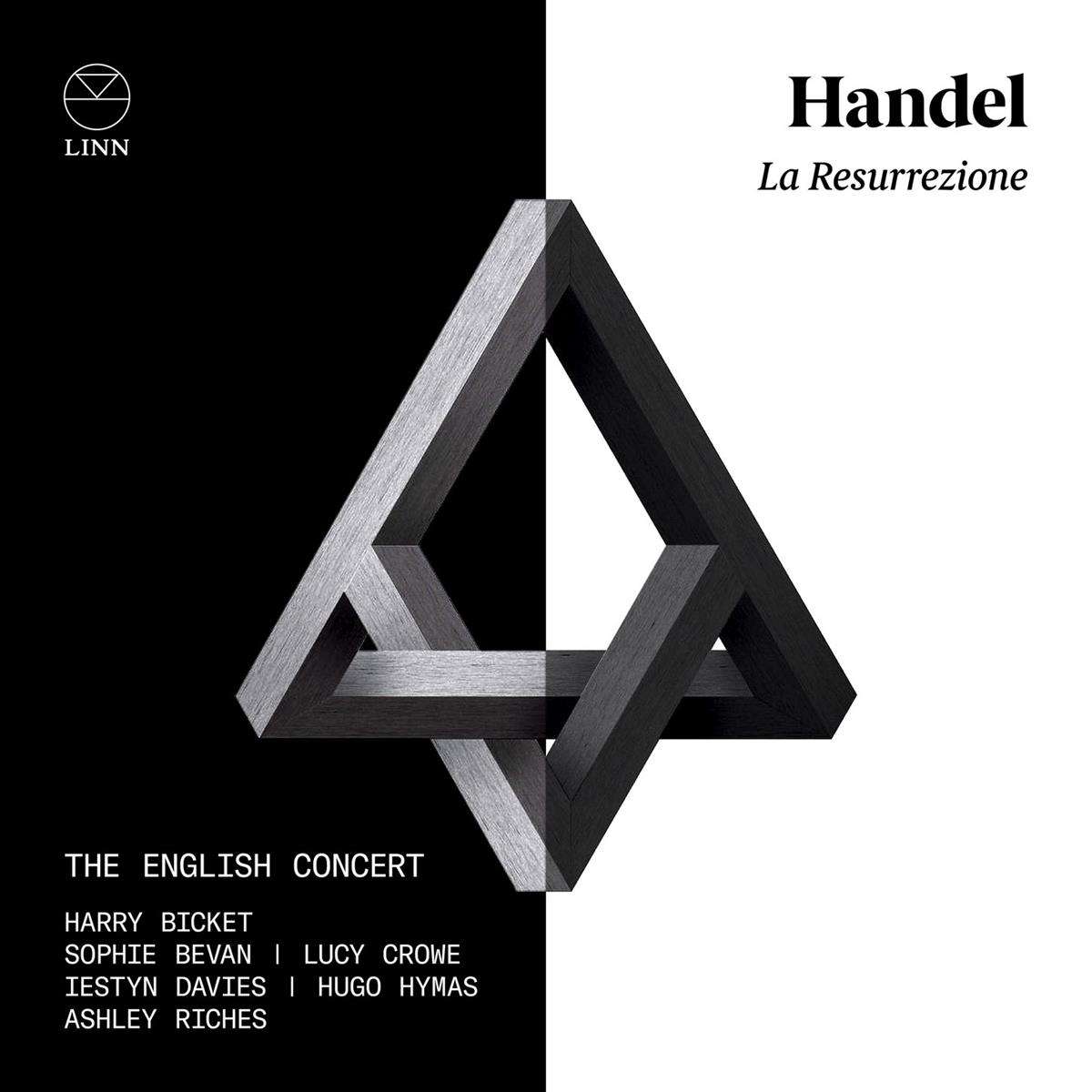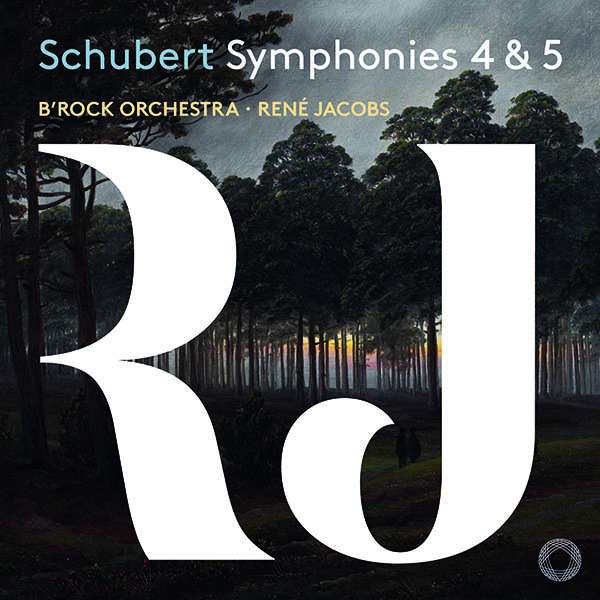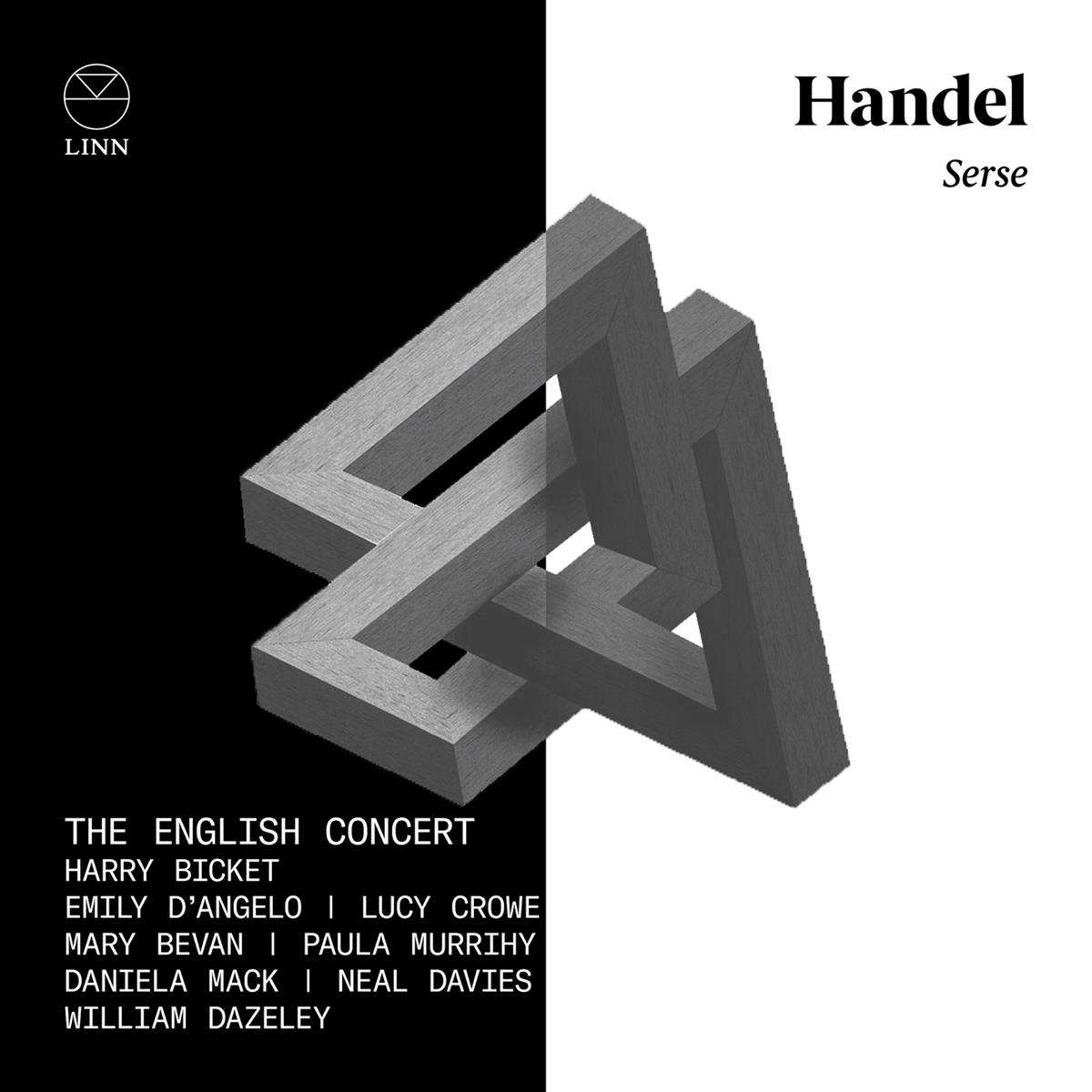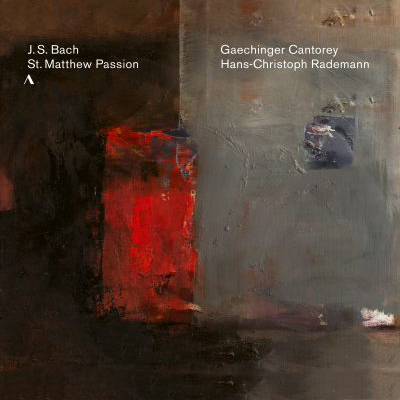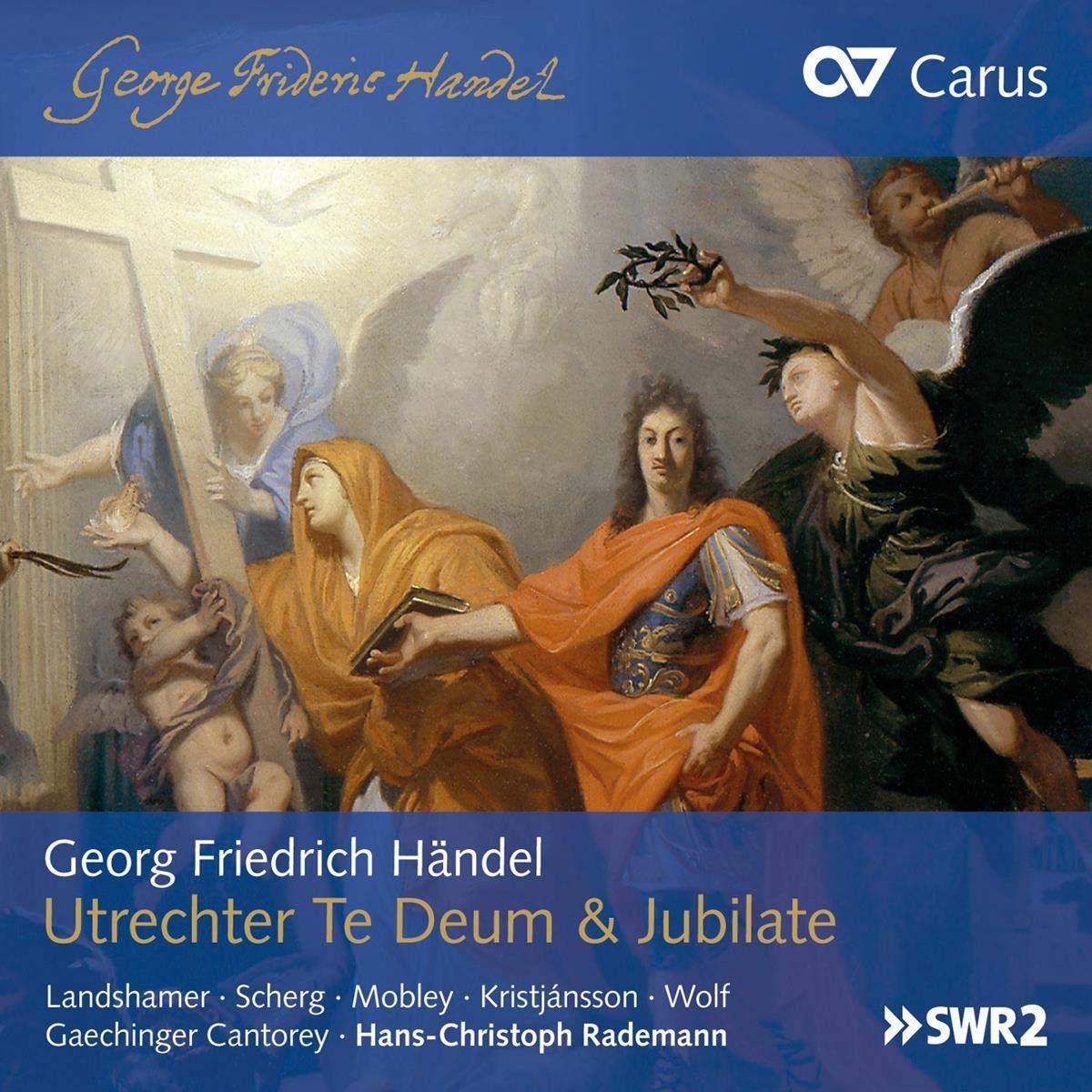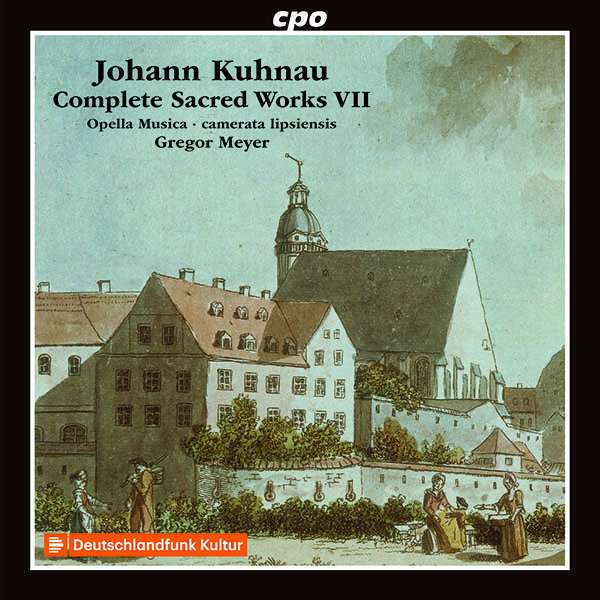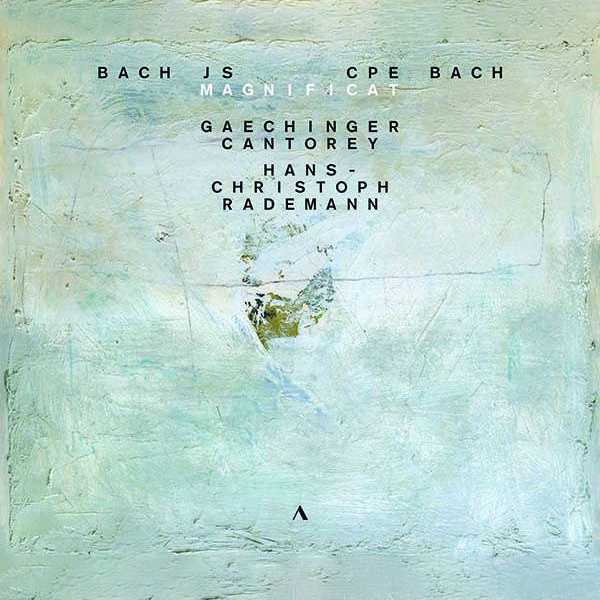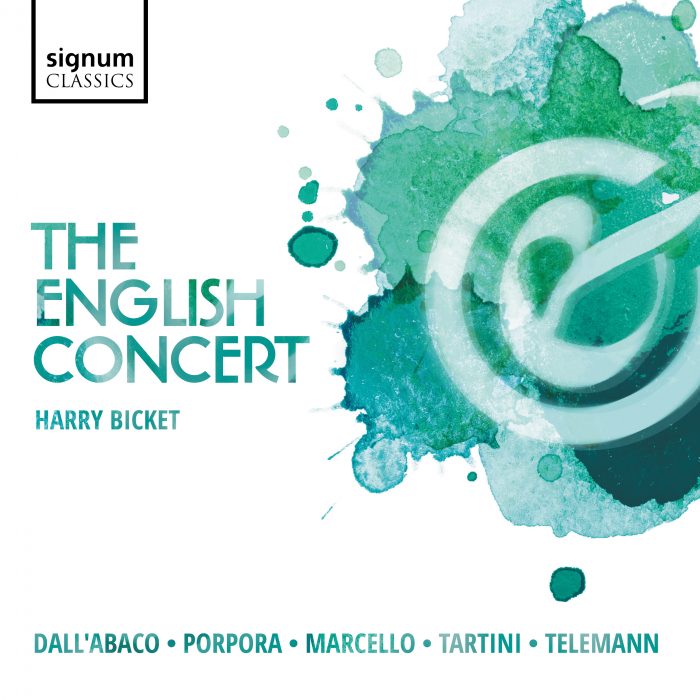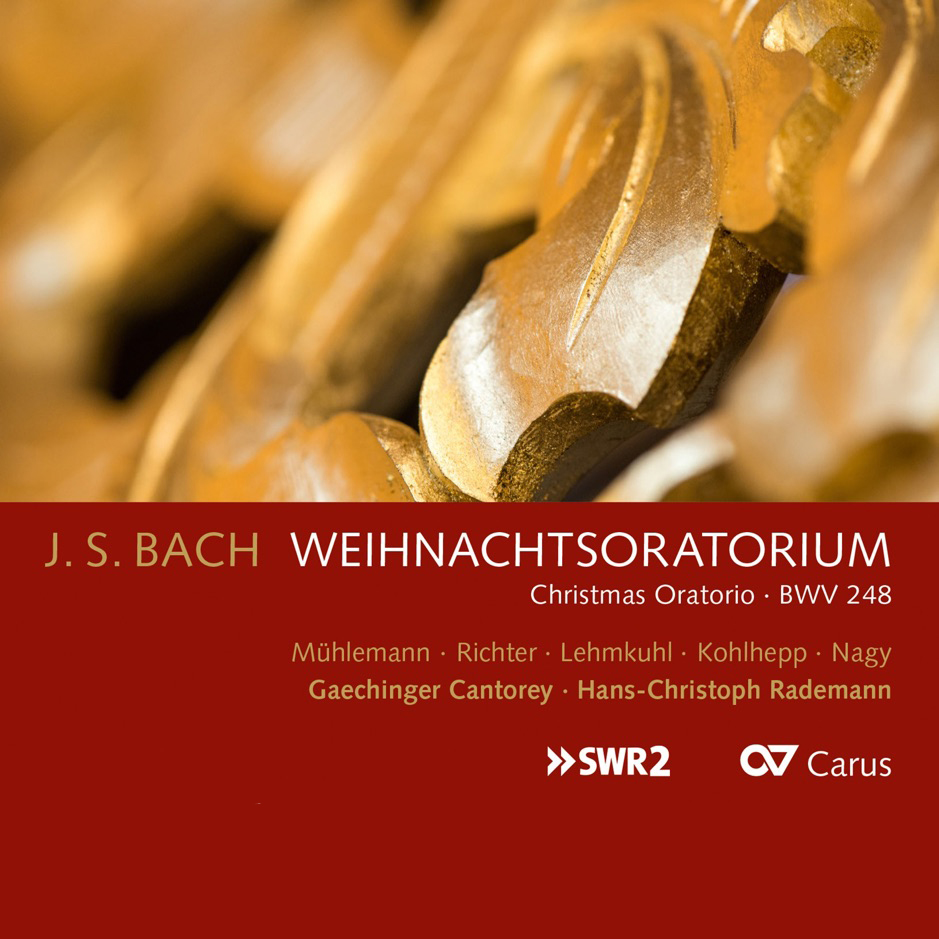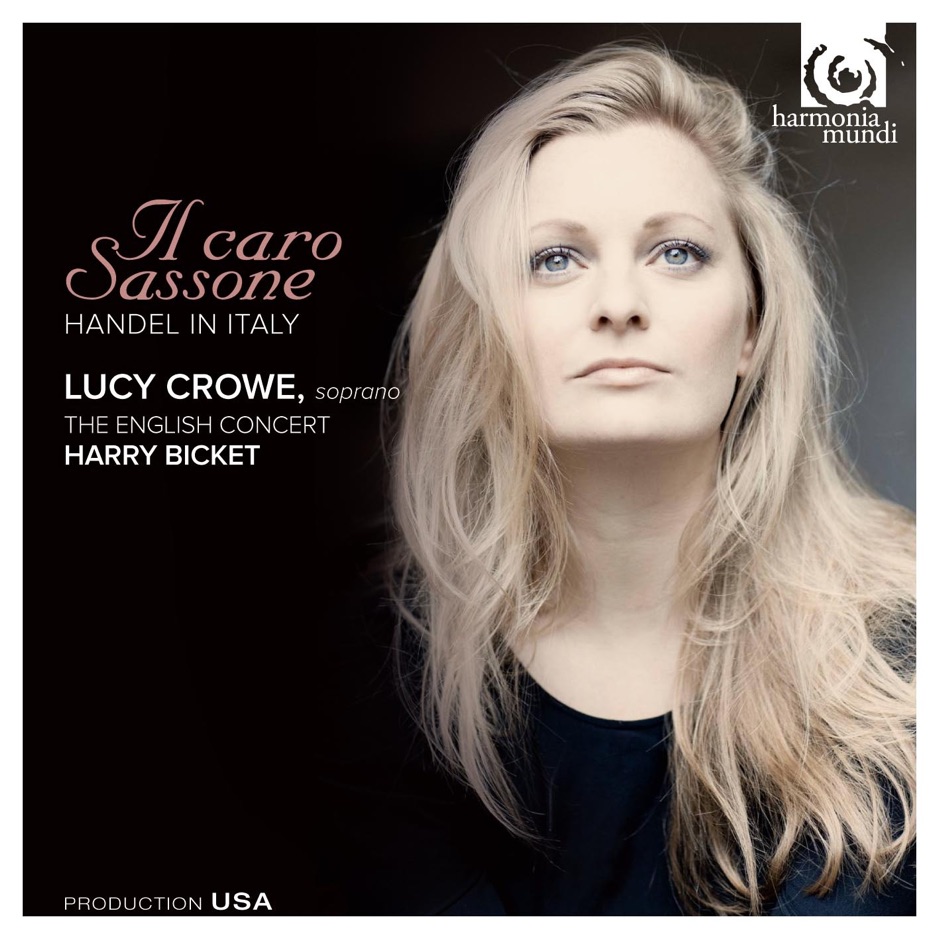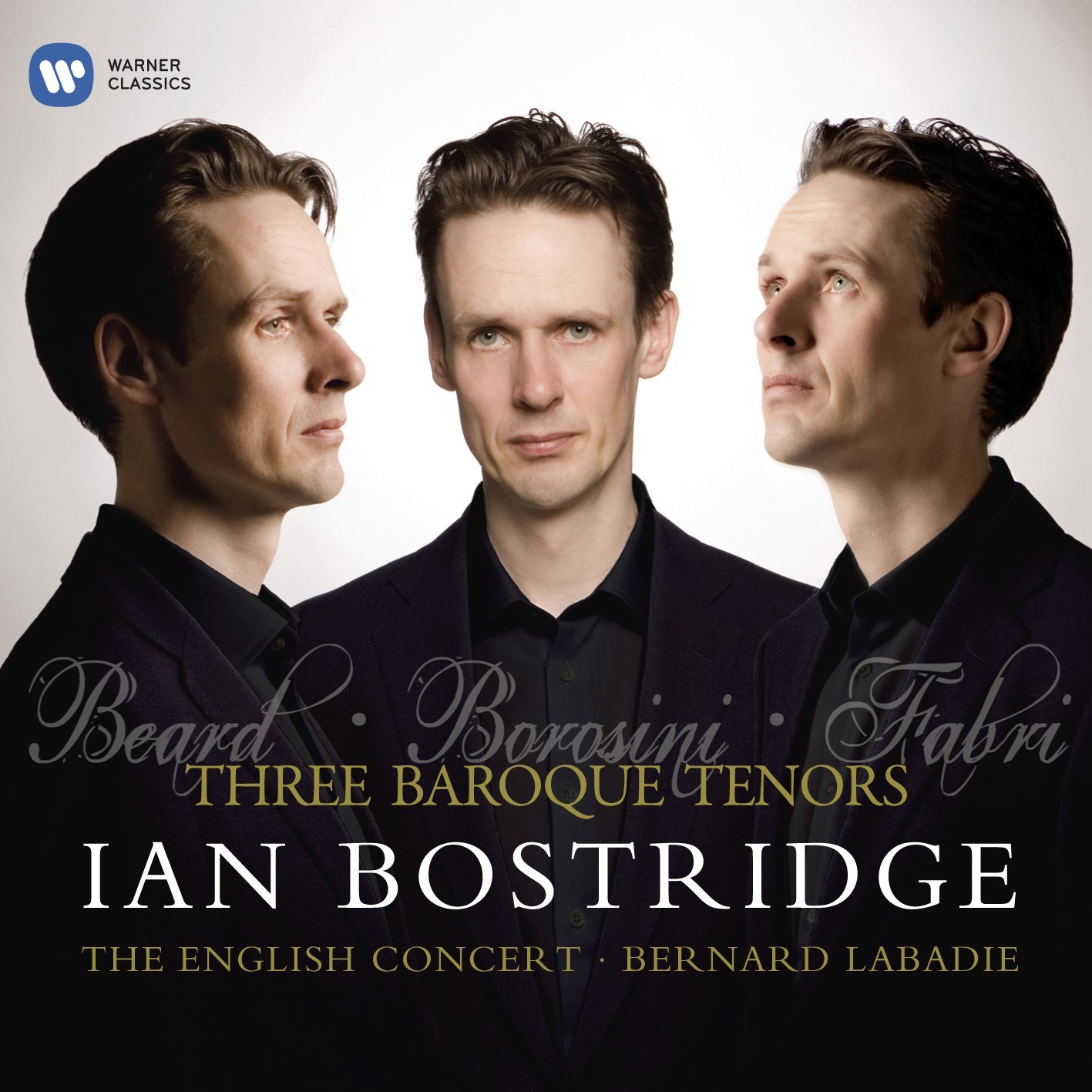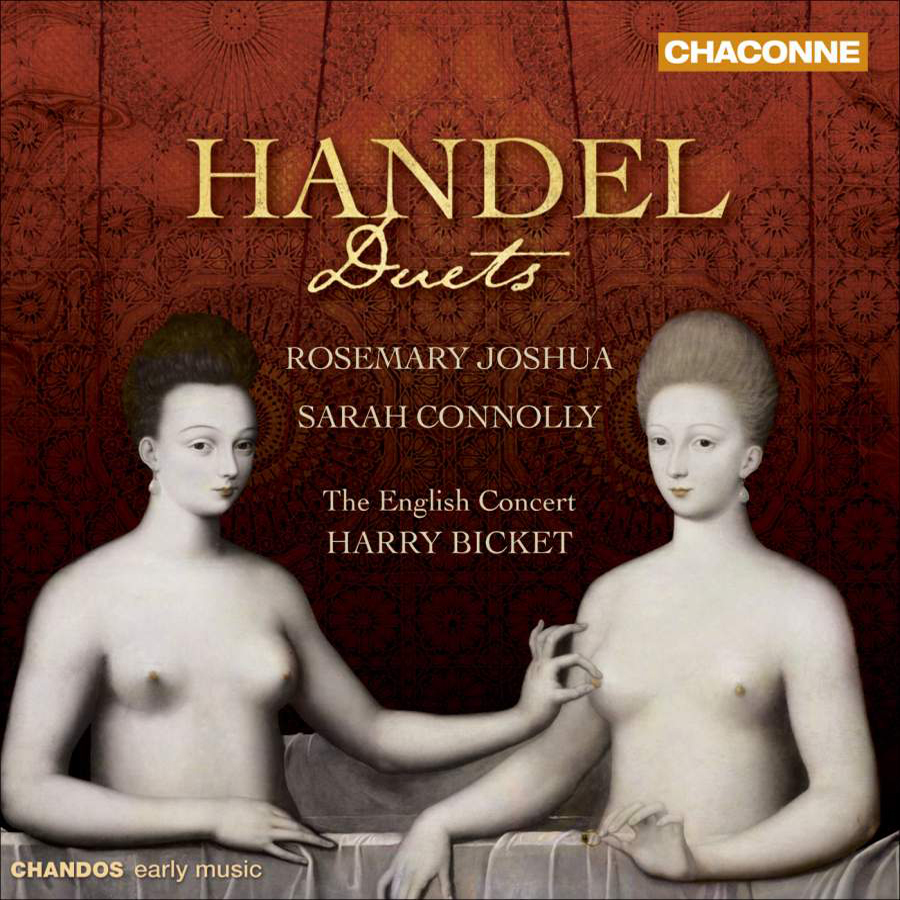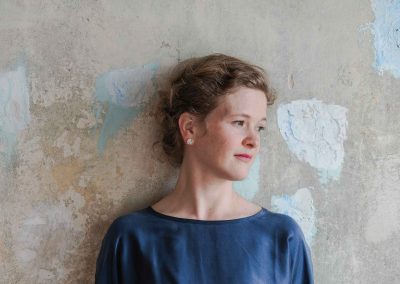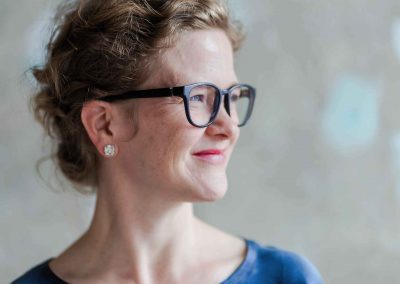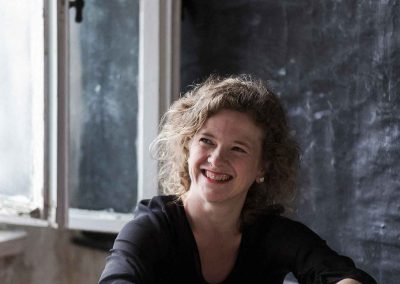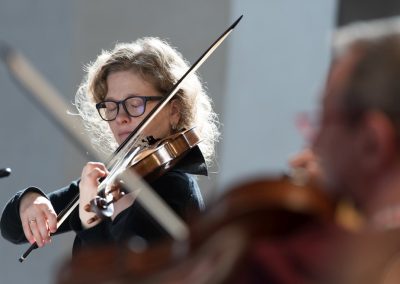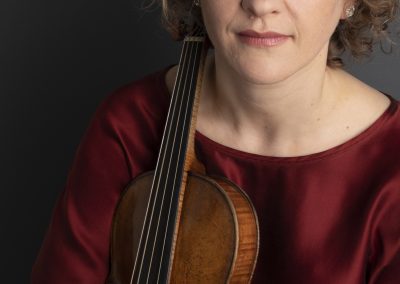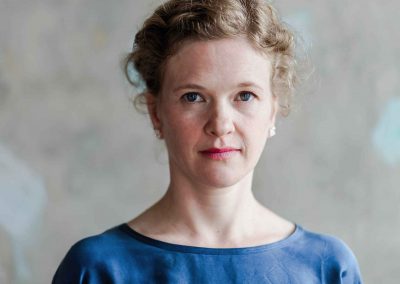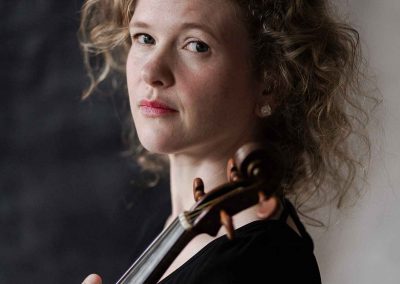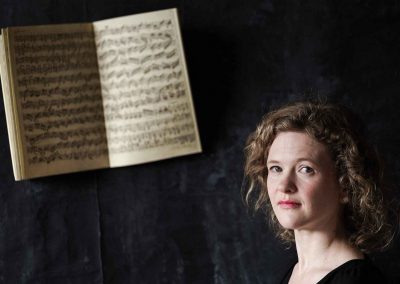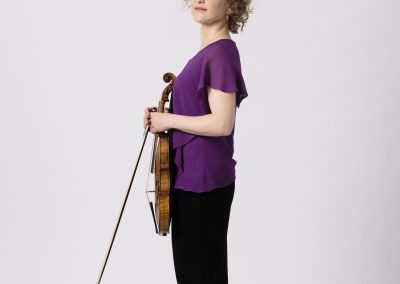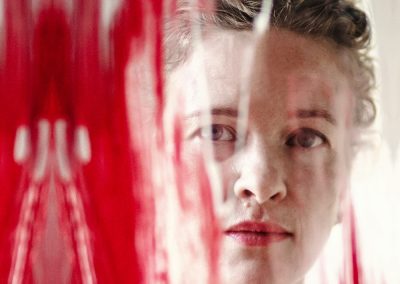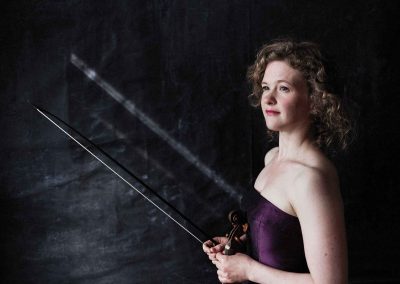
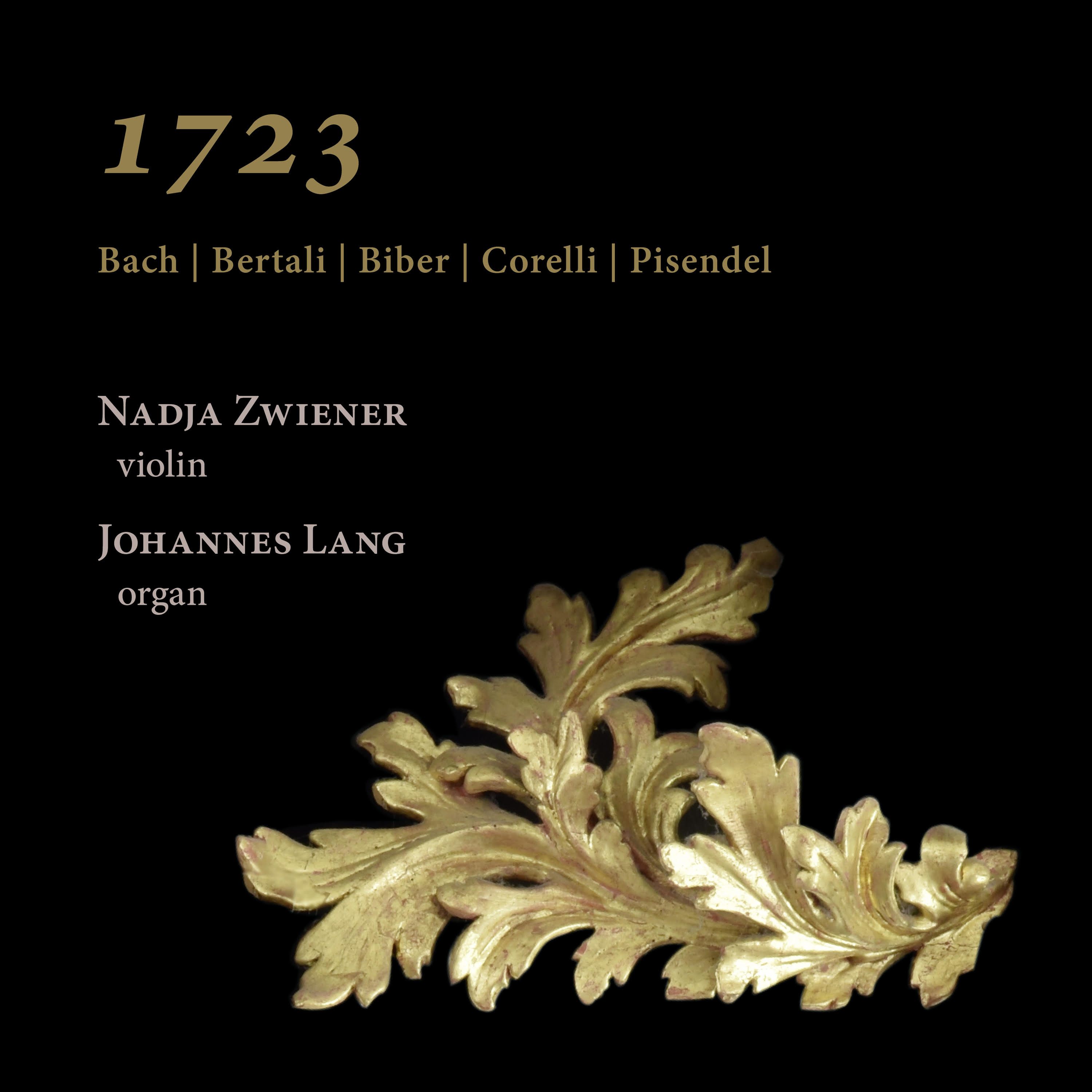
Johann Sebastian Bach, the newly appointed Cantor of the Thomaskirche, undertook his first official journey from Leipzig to nearby Störmthal in 1723, where he and his Thomanerchor inaugurated the beautiful new organ built by Zacharias Hildebrandt, a pupil of Silbermann. Bach was thrilled by the instrument’s splendid timbres and tonal beauty. A particularly beautiful violin was made by the German luthier David Tecchler in Rome — 1400 km from Störmthal — during that same year. Both instruments have survived and have been excellently restored; now, three hundred years after their creation, they meet for the first time. Nadja Zwiener, leader of The English Concert and Johannes Lang, the current organist of the Thomaskirche here celebrate the 300th anniversary of these two instruments and Bach’s investiture in Leipzig with a florilegium of works by Bach himself, his contemporaries and his predecessors. A splendidly colourful musical firework!
Geradezu beglückend funktioniert das Zusammenspiel der beiden Instrumentalisten: Nadja Zwiener spielt die italienische Violine mit klarem, differenziertem Klang und großer Virtuosität; Johannes Lang begleitet auf der sächsischen Orgel mit viel Grundtönigkeit und abwechslungsreichen Registrierungen. So ein Album hört sich nicht nur wunderbar an, sondern sollte auch Signalwirkung haben: Weg von der Truhenorgel, hin zu den historischen Orgeln!
Zwiener und Lang breiten die Stücke wie feinste Preziosen vor uns aus, wobei Zwieners hingebungsvoller Violinton eine bemerkenswerte Geschmeidigkeit, Vielgestaltigkeit und eine natürlich atmende Bewegung hat. Das fließt in bester kammermusikalischer Vertrautheit ineinander mit Langs Spiel.
Völlig unverbrauchte Musik, so sinnlich wie präzise gespielt, und sehr natürlich und körperhaft produziert.
Résultat, cette heure d’écoute passe comme un souffle malgré la relative uniformité sonore qu’impose le postulat de départ. Mais le disque est aussi une sorte de manifeste de résistance contre la dureté des temps actuels : réaction artistique et intellectuelle d’une interprète (par ailleurs leader de l’English Concert) contrainte par les confinements de se priver de ses collègues de l’orchestre ou d’un continuo. Concentré d’érudition musicologique, de maîtrise instrumentale et de finesse musicale, un disque à ne pas rater!
Auf dieser CD dürfte viel aus der unmittelbaren Zeit mitschwingen. Nicht nur eine musikalische Liebeserklärung der Violinistin an die Musik des 17. und 18. Jahrhunderts.
Mit ihrem facettenreichen Spiel läßt Nadja Zwiener die Überraschungen und unverhofften Wendungen dieser Musik ebenso lebendig werden, wie sie die Abwechslung kontemplativer Situationen und virtuoser Errergung auskostet.
The Pisendel Sonata à Violino solo senza Basso a-moll is a particular demanding work for the player, with virtuosic figurations and double-stopping in the concluding Giga. Variationen (at 8’56, the longest piece on the CD) that Nadja Zwiener makes sound effortless. (…) It was recorded in the Bethanienkirche in Leipzig, the attractive acoustic adding a pleasent bloom to the sound whilst allowing individual notes to shine through. The playing is beautifully sensitive.
Musik, die atmet, weil sie spricht, singt, flüstert, sucht und findet. An jeder Wegesecke ein neuer Ton, der mit kindlichem Staunen von allen Seiten betrachtet wird. So ein Geigenbogen lebt, jedenfalls, wenn er in die richtigen Hände gerät.
About
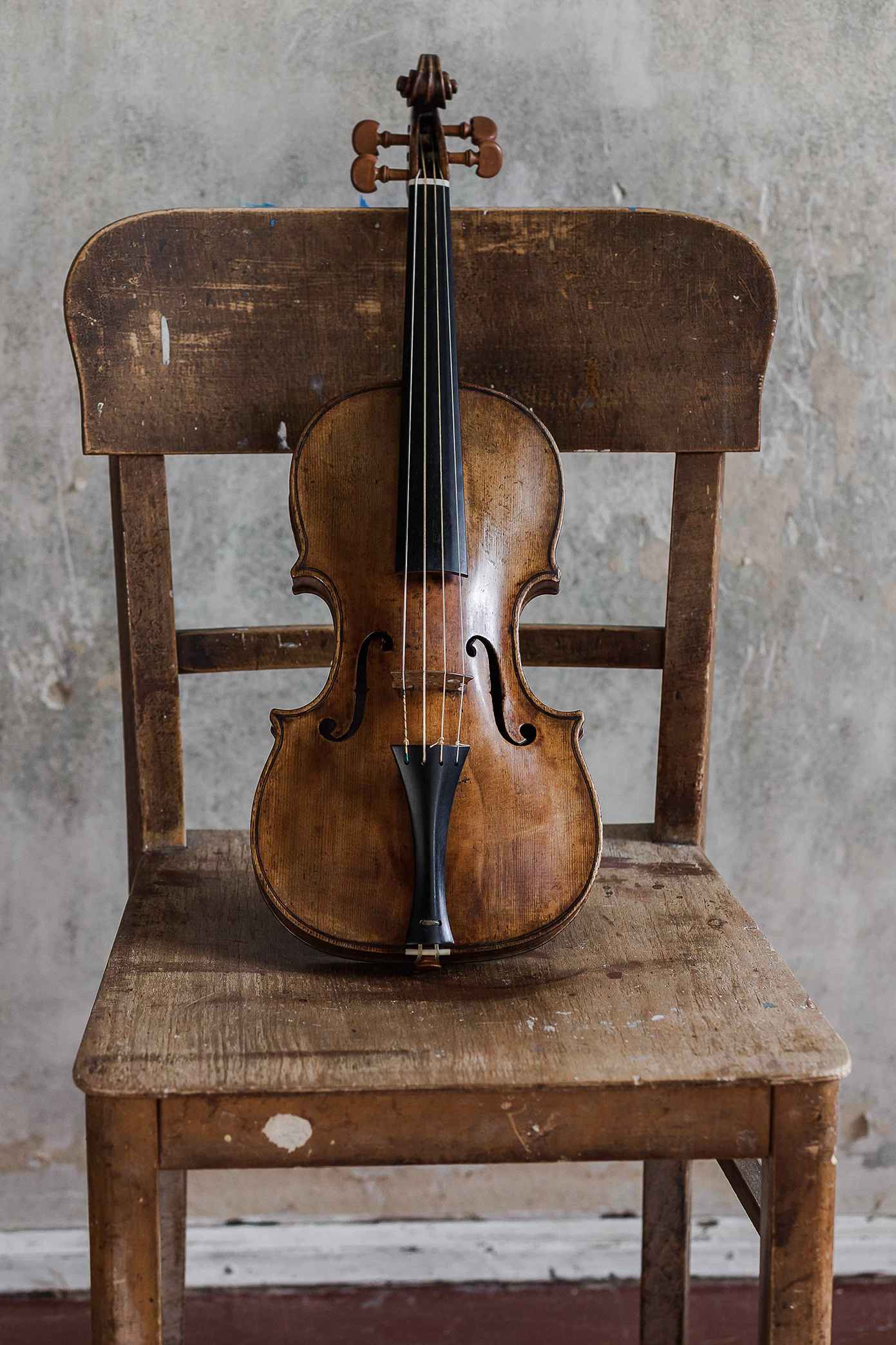
Concerts
Multimedia
Johann Sebastian Bach, Adagio from The Solo Sonata in G Minor
George Frideric Handel, Suite Aus "II Pastor Fido" HWV 8a - Allegro
Johann Sebastian Bach, Der Friede Sei Mit Dir, BWV 158: II. Welt, Ade, Ich Bin Dein Müde (Excerpt)
